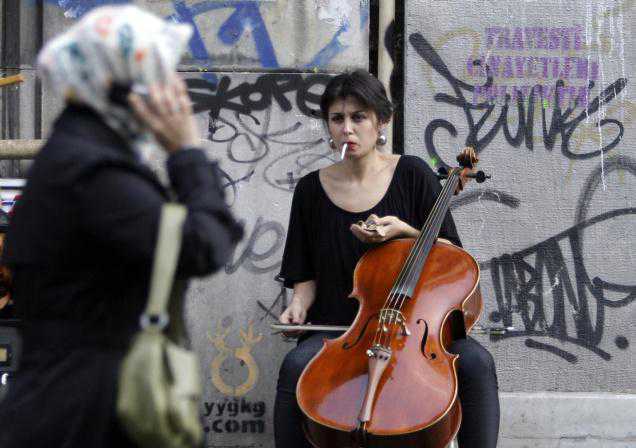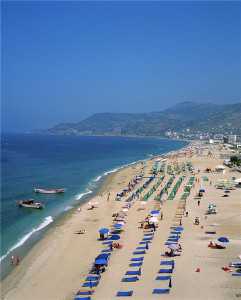Tag: Mardin
-

Video: Ryan Doyle – Mardin, Turkey Assassins Creed style
trailer for the 26 minute doc about the history and heritage of Mardin and how people have adapted to different cultures, lifestyle, religion and architecture.
-

Syriacs returning to Turkey after 1980s migration to Europe
Syriac families who fled to Europe starting in the 1980s due to instability caused by terrorist activities in Turkey’s East and Southeast have recently started returning to their homeland due to a decrease in terrorism in Turkey.
Syriacs have lived for about 5,000 years in the provinces of Mardin, Batman and Şırnak, and some migrated to various foreign countries because of the fighting between the Turkish Armed Forces (TSK) and Kurdistan Workers’ Party (PKK) terrorists that broke out in the region in 1980. The other reason behind the migration was the unsolved murders of about 50 Syriac individuals that occurred between 1985 and 1995. As a result, 2,845 Syriac families migrated to various European countries due to a lack of safety in the region.
However, with the reduction of terrorist activities in the region, some Syriac families started to return to their homeland in the 2000s. Ninety-one of 2,845 Syriac families returned to their homes in eastern and southeastern Turkey.
Speaking to the Radikal daily, some returnees said they are happy to come back to Turkey but complain about a lack of infrastructure in their hometowns. They also say that young people are having problems adapting to the region because they had been born and raised in Europe.
Priest Saliba Erden, a Syriac who returned to Turkey after living in Switzerland for about 20 years, said that his children, who were born and grew up in Switzerland, have had many problems adapting to their new home. Erden said, “In order to overcome these problems, we have built modern houses in the villages, but when my children go out, they see the ruined village of Şırnak.”
Saying that they had to migrate in 1984 to Switzerland from Şırnak’s Basibrin village, Erden added: “Our return has improved the morale of Syriac families who wanted to migrate from the village but gave up on going. We rebuilt 15 houses and repaired another 17 in the village.”
“The most prominent problem in the village is now infrastructure deficiencies and ignorance. My daughter had to go to Germany to continue her education because girls have difficulties getting an education in the region due to some ignorant beliefs,” Erden noted.
Erden said that although there have been some developments in providing water and electricity through the initiatives of the İdil district governorate, some problems remain in the village with the drainage system and road construction.
Aziz Demir, another Syriac who returned from Europe in 2006 to his native Kafro village in Mardin, said when they returned to their village, no one lived there anymore because it had been declared a “prohibited area” due to terrorism activities during the ’80s. He said he struggled to get the prohibition on the village removed through diplomatic channels and eventually succeeded. Demir added that after he built his house and installed electrical wiring and a water supply system for the village, 12 families returned to live in Kafro.
Noting that they had to migrate in 1985 because they were caught between the PKK and the state’s forces, Demir said: “My homeland and history are here [in Kafro village]. We had to go, but when conditions improved in the region, we came back.” Demir also said that he has two children, now aged 18 and 21, who experienced problems adapting, but they have begun to overcome them.
Returning to Ahvil village in Mardin’s Midyat district in 2010, Tuma Çelik said he does not regret returning to his hometown, even though most of the houses had collapsed and were in bad condition, and the village also has some deficiencies in infrastructure.
Saying that he was asked by the villagers to be the mukhtar (head) of the village, Çelik added: “Syriac communities and Muslim communities are getting along well now, and they represent an example for people in the other parts of Turkey. The Muslims’ act of making me a mukhtar of the village is a sign of this peace.”
via Syriacs returning to Turkey after 1980s migration to Europe.
-

Turkey Debates the Village Guard System
Publication: Eurasia Daily Monitor Volume: 6 Issue: 90May 11, 2009
